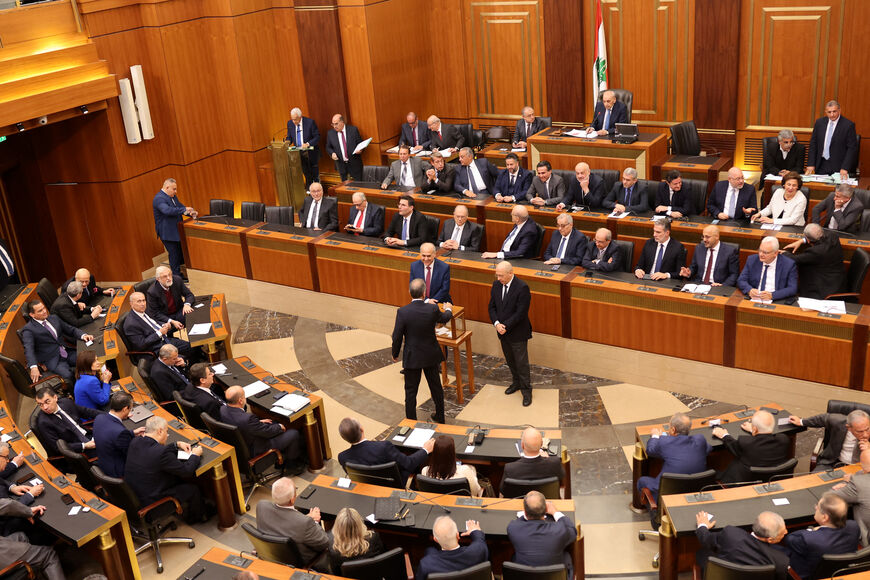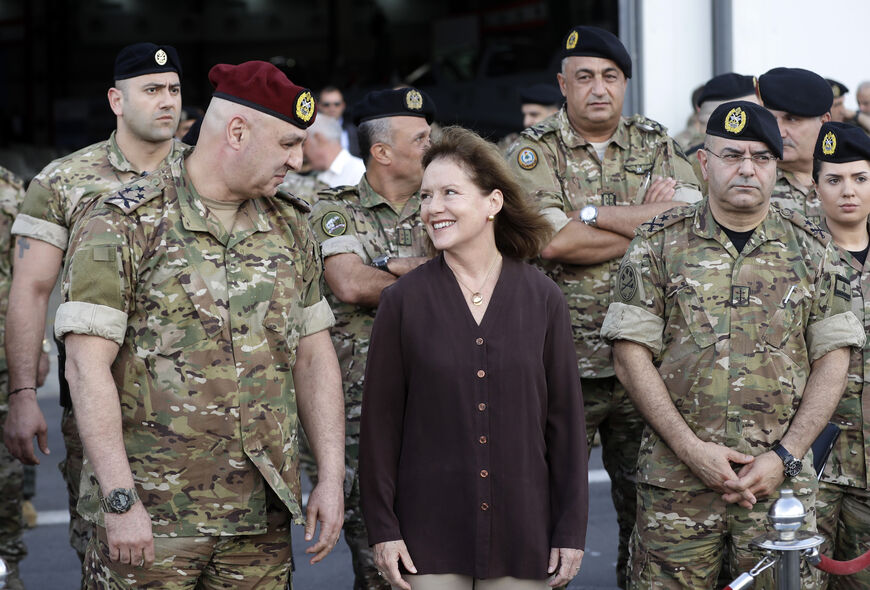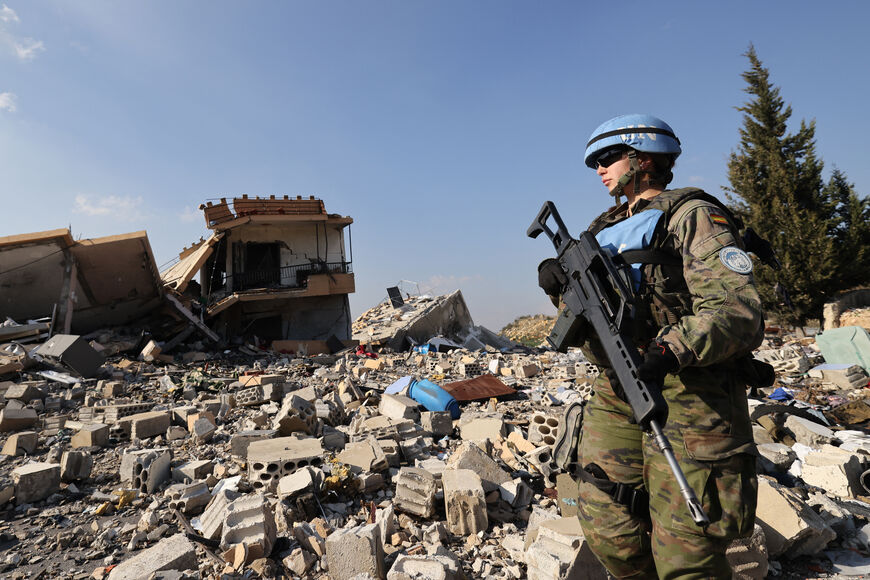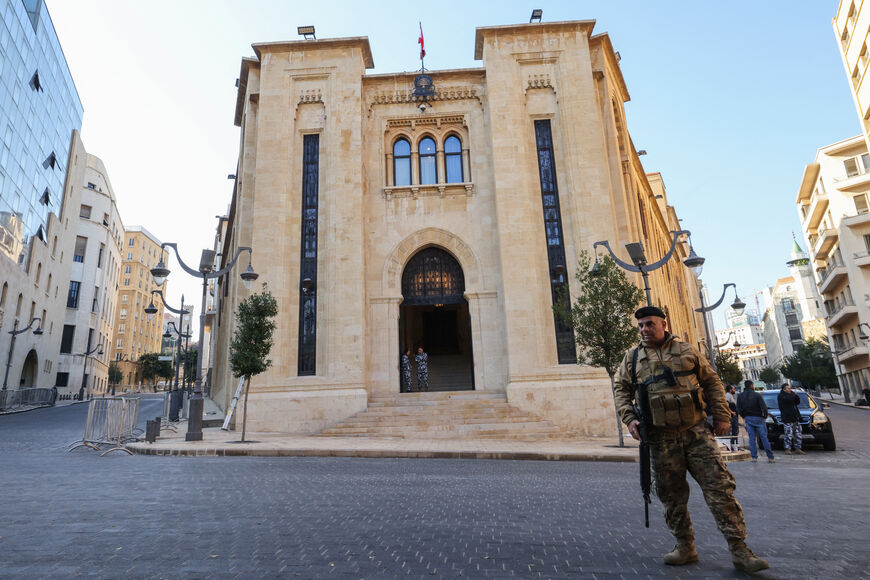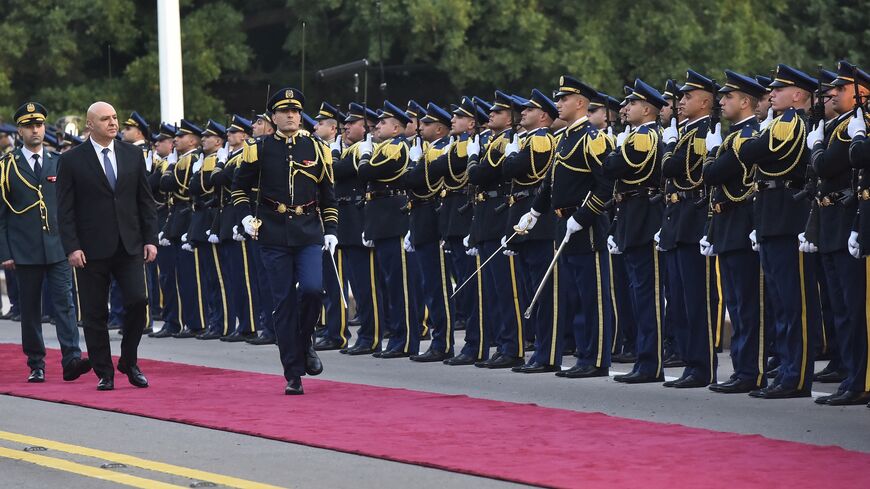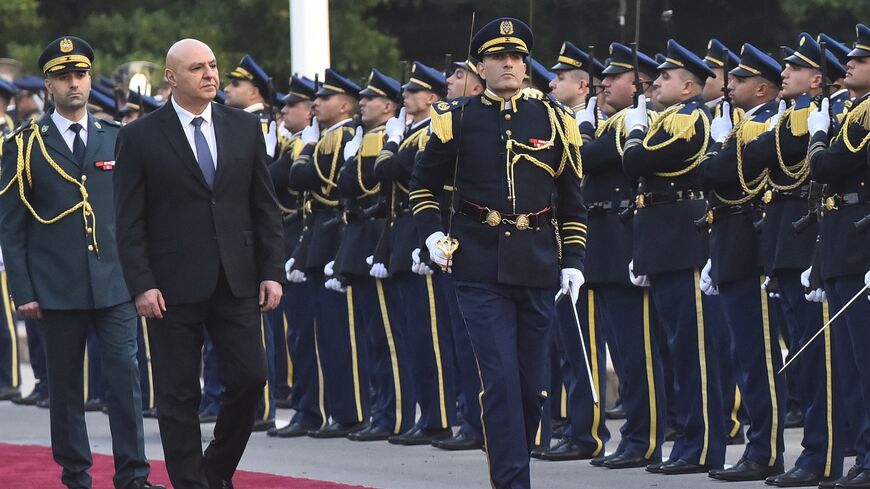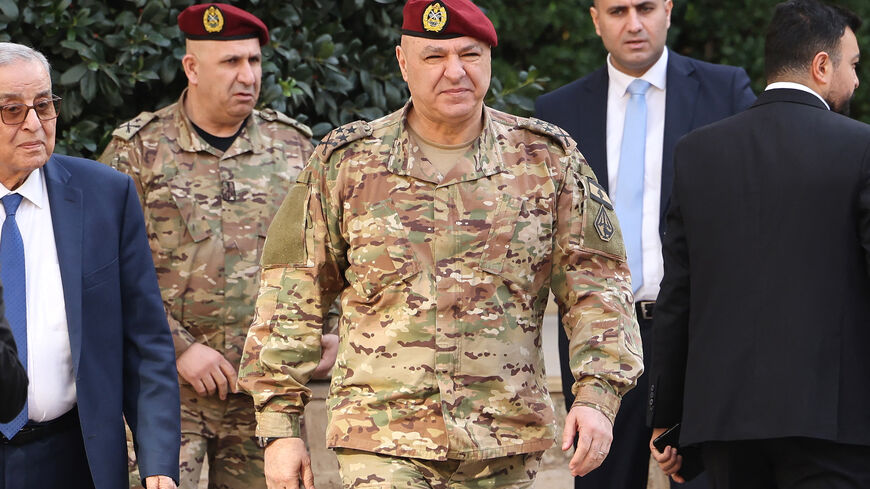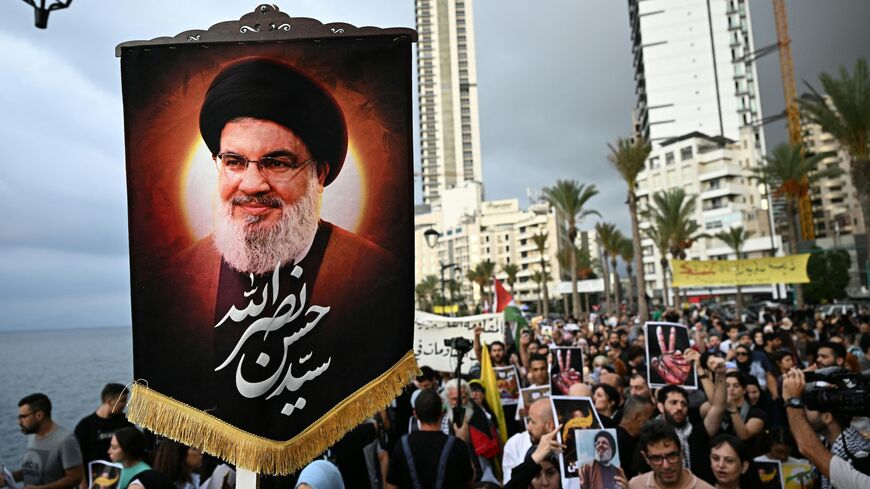Joseph Aoun elected president of Lebanon, ending two-year void
The election of army commander Gen. Joseph Aoun garnered rare consensus among the Lebanese, backed by the United States and Saudi Arabia in the first presidential election for Lebanon following the fall of the Assad regime.

BEIRUT — Lebanon’s army chief, Gen. Joseph Aoun, was elected president on Thursday after a more than two-year vacuum at the top position in the country amid deepening political rivalries, economic and financial strains and growing instability.
Aoun, who has been commander of the Lebanese Armed Forces since 2017, secured 99 votes out of 128 during the second round of a parliament session called by its speaker, Nabih Berri. During the first round of voting earlier on Thursday, Aoun received 71 votes, short of the 86 required to become president.
Article 49 of the Lebanese constitution prohibits serving government employees and members of the armed forces from running for president unless they secure two-thirds majority of the vote. Aoun therefore required a minimum of 86 parliamentary votes and not just a simple majority (65) to circumvent this rule.
The breakthrough followed intense regional and international diplomacy led by the United States, Saudi Arabia, Egypt and others. Thursday's session followed the implementation of a 60-day ceasefire between Lebanon and Israel brokered by the United States, which took effect on Nov. 27, 2024. The ceasefire, which is up for renewal on Jan. 25, ended a 13-month conflict between Israel and Hezbollah. The Lebanese military plays a central role in implementing the arrangement.
Lebanon has been without a president since October 2022, when the term of Hezbollah-backed President Michel Aoun (no relation) concluded. Since then, the country's fractured parliament has failed in 12 attempts to elect a new president, leaving Lebanon with a caretaker government operating with limited powers.
Regional and international actors, including Saudi Arabia and the United States, have ramped up diplomatic efforts in an apparent bid to secure the election of Aoun.
As the head of Lebanon’s army, Aoun has built a reputation for personal integrity. Many view him as incorruptible and a stabilizing figure for the nation.
Who is Joseph Aoun?
Aoun was born to a Maronite Christian family in 1964 in the Sin el-Fil suburb of the Metn district, east of the capital Beirut. His family hails from the town of Aishiye in south Lebanon, making him the first president in the history of the republic from that region.
He holds a bachelor’s degree in political science with a focus in international affairs from the Lebanese American University and another bachelor's in military science, according to the LAF website. In addition to his native Arabic language, Aoun is fluent in English and French.
He is married to Nehmat Nehmeh and together they have two children, Khalil and Nour. The family attended the second round of the vote on Thursday.
Aoun’s military journey began in 1983, when he first enlisted in the army. He was subsequently promoted until he reached the rank of general and was then appointed as the LAF commander in March 2017, succeeding Gen. Jean Kahwaji.
He has had his mandate extended twice: In December 2023, the Lebanese Parliament approved a one-year extension of Aoun’s term. He was scheduled to retire in January 2024. Again, on Nov. 28, 2024, weeks before his tenure was set to expire on Jan. 10, 2025, Aoun’s term was renewed for an additional year.
Aoun underwent intensive military training both in Lebanon and abroad. In 1996, he went to Syria to receive commando training, and then again between October 2002 and April 2003 he trained in the neighboring country to become a battalion commander.
He also attended an international defense management course in the United States in 1999 and another international counter terrorism program between 2008 and 2009.
Military achievements
Under his leadership, the LAF led in August 2017 the so-called Fajr al-Joroud battle against the Islamic State and Jabhat al-Nusra in the barren lands (joroud) of Ras Baalbeck and al-Qaa in eastern Lebanon along the border with Syria.
The swift operation, which lasted less than two weeks, saw the killing of more than 150 jihadists, according to the army. A total of seven soldiers were killed in the battles, while the remains of eight soldiers who were kidnapped in 2014 and later executed by ISIS were found in the outskirts of Arsal. Aoun at the time said the military achieved a “decisive victory against terrorism.”
The recent ceasefire called for the deployment of the Lebanese military in south Lebanon alongside UNIFIL troops following the withdrawal of Israeli troops. The deal also stipulates the withdrawal of Hezbollah elements north of the Litani River, about 30 kilometers (18 miles) from the border with Israel.
Army units have begun entering several towns and villages near the border with Israel, including the border town of Naqoura.
International push for Aoun’s election?
Aoun also led the army during the country’s devastating 2019 economic and financial crisis that saw the collapse of the banking sector and the devaluation of the local currency. Enlisted soldiers saw their salaries reduced from around $800 a month to less than $100, while many officers now earn roughly $250 per month.
After the financial collapse, the United States, one of the main donors to the LAF, increased its aid to the army. In June 2023, Washington rerouted $72 million in assistance to Lebanon to help pay the salaries of Lebanese soldiers and police officers for a period of six months.
Since 2006, Washington has provided more than $3 billion in various forms of aid to the LAF to help it counter internal and external threats, according to the State Department.
The LAF has received US military equipment including armored vehicles.
Qatar has also sent financial aid to the Lebanese military, announcing in July 2022 a $60 million aid package to support the salaries of military personnel. More recently in October, as the Israel-Hezbollah war was raging, a Paris conference on aid for Lebanon raised around $200 million to strengthen the military and security forces.
In addition to navigating the financial crisis, Aoun seemed to enjoy the backing of Western and regional powers during his tenure.
In the run-up to Thursday’s elections, the general held several meetings with French and US officials in Beirut and traveled to Saudi Arabia. During his Dec. 26 visit to the kingdom, Aoun met with Saudi Minister of Defense Prince Khalid bin Salman bin Abdulaziz and discussed military and defense relations between the two countries as well as ways to strengthen support for Lebanon’s military.
On Dec. 20, Aoun held talks with visiting French Foreign Minister Jean-Noel Barrot and Defense Minister Sebastien Lecornu on “ways to strengthen cooperation relations between the armies of the two countries and to continue support for the army in light of current circumstances,” an army statement read.
On Monday, the Lebanese army chief sat down with US envoy to the Middle East Amos Hochstein at his Yarzeh office to discuss the implementation of the Israel-Hezbollah ceasefire. Hochstein, who arrived in Beirut on Monday following a stop in Saudi Arabia, met with Lebanese officials and several political leaders as part of Washington’s apparent push for the election of a president in Lebanon.
Aoun visited Washington in June 2024 and February 2023.

